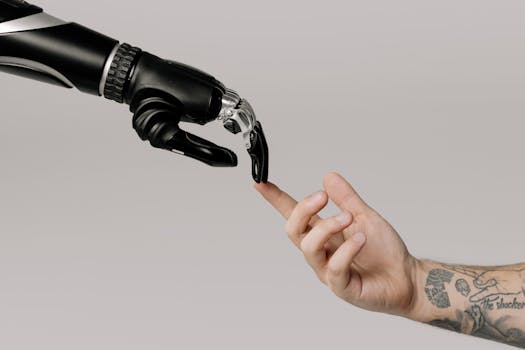Imagine feeling overwhelmed and looking for someone to talk to about your struggles, but there aren’t many (or the right) people to listen to you. With the rise of AI therapy tools, you might turn to a 24/7 AI chatbot you find on your app store—a virtual companion offering to guide you through tough times with support, coping strategies, and even a bit of therapy whenever you need it. Would you give it a try, or would you hesitate, wondering if it could truly understand you the way a human could? This scenario isn’t hypothetical anymore; it’s part of the evolving reality in mental health care. AI is making its way into the therapy world, but its role raises serious concerns about whether it can genuinely replace a human therapist or if it’s just another overhyped technological solution.

ChatGPT my therapist
For quite a while now, chatbots like Pi and Woebot, but also ChatGPT, have provided some sort of therapeutic conversations and coping strategies, open to whoever holds a smartphone and has internet access. These tools offer round-the-clock availability, which is particularly appealing for people in remote areas or those hesitant to seek traditional therapy. But here’s where things get tricky. While these apps are undeniably innovative, they lack one critical element: empathy. According to Kuhail et al., users/patients engaging in AI-mediated therapeutic sessions reported lower satisfaction compared to those in traditional therapy. Why? Because while chatbots can simulate therapeutic conversations, they can’t replace the interpersonal alliance and genuine understanding that human therapists and cats can provide.
Ethical challenges and privacy risks of AI in mental health
AI-powered therapy tools aren’t without their challenges. Here are the biggest concerns:
- Privacy Risks
These apps handle deeply personal and sensitive information, and safeguarding this data should be non-negotiable. In a profit-driven world, however, true accountability and robust data protection often fall short. - Bias in AI Systems
AI is only as good as the data it’s trained on. If the training data is biased, the outcomes can be unfair, especially for individuals from marginalized or underrepresented groups. - Ethical Questions
How do we maintain the sanctity of the patient-therapist relationship in a world where technology becomes the first confidant? While it might take years to build trust with a human therapist, people may disclose personal or traumatic experiences to an AI far more quickly, because it doesn’t judge or react.
However, this shift raises an important question: Can AI responsibly handle such disclosures? Without strict ethical standards, the risks of misuse and exploitation loom large.

AI as a supplement, not a replacement
AI has the potential to revolutionize mental health care, but let’s be clear, it’s here to assist, not replace. A recent study on ethical considerations in AI for mental health (2023) underscores that while AI tools can be game changers for spotting early warning signs and providing scalable support, they’re no substitute for the human touch. Think of AI as an assistant:
- It can track your mood patterns.
- It can send reminders.
- It can suggest coping strategies.
But real healing happens in the safe, empathetic space that a therapist provides. Without that human touch, AI becomes a tool with answers but no true understanding – helpful, but only up to a point.
Finding the balance
AI is carving out a space in mental health care, offering accessibility, scalability, and innovative tools to support well-being. But no matter how advanced, it can’t replicate the empathy, trust, and connection that define human therapy. As technology continues to evolve, we must view AI as a helpful companion rather than a replacement for the human touch. By combining the efficiency of AI with the irreplaceable understanding of therapists, we can create a mental health care system that is both accessible and deeply compassionate. After all, healing isn’t just about being heard, it’s about being understood.